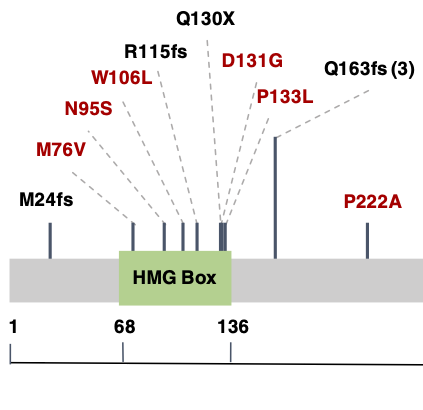Abstract
BACKGROUND: Pulmonary arterial hypertension (PAH) is a rare disease characterized by pulmonary arteriole remodeling, elevated arterial pressure and resistance, and subsequent heart failure. Compared with adult-onset disease, pediatric-onset PAH is more heterogeneous and often associated with worse prognosis. Although BMPR2 mutations underlie ≈70% of adult familial PAH (FPAH) cases, the genetic basis of PAH in children is less understood. METHODS: We performed genetic analysis of 155 pediatric- and 257 adult-onset PAH patients, including both FPAH and sporadic, idiopathic PAH (IPAH). After screening for 2 common PAH risk genes, mutation-negative FPAH and all IPAH cases were evaluated by exome sequencing. RESULTS: We observed similar frequencies of rare, deleterious BMPR2 mutations in pediatric- and adult-onset patients: ≈55% in FPAH and 10% in IPAH patients in both age groups. However, there was significant enrichment of TBX4 mutations in pediatric- compared with adult-onset patients (IPAH: 10/130 pediatric versus 0/178 adult-onset), and TBX4 carriers had younger mean age-of-onset compared with BMPR2 carriers. Mutations in other known PAH risk genes were infrequent in both age groups. Notably, among pediatric IPAH patients without mutations in known risk genes, exome sequencing revealed a 2-fold enrichment of de novo likely gene-damaging and predicted deleterious missense variants. CONCLUSIONS: Mutations in known PAH risk genes accounted for ≈70% to 80% of FPAH in both age groups, 21% of pediatric-onset IPAH, and 11% of adult-onset IPAH. Rare, predicted deleterious variants in TBX4 are enriched in pediatric patients and de novo variants in novel genes may explain ≈19% of pediatric-onset IPAH cases.
